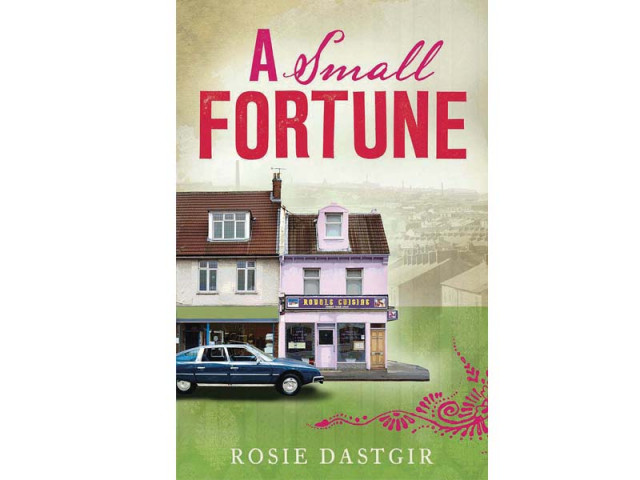Book review: A Small Fortune - Indebted
Sometimes a fortune brings more problems than it can solve.

.
Haaris Anwer is a good Samaritan with a nose for astute sartorial purchases and an unflinching sense of responsibility towards his kinsmen, (and kinswomen) both in Britain, and in his village near Lahore, Pakistan. His selflessness always gets the better of him, making him cave in to help requests from relatives while stinting his own resources and playing hopscotch with his own problems — a rocky marriage, a daughter, relatives in pursuit, a store, a Citröen, trouble with his apartment and a prospective suitor to mention a few. Things take a hasty turn when he comes across a large sum of money as a divorce settlement. What ensues is a classic tug-of-war between Anwer wanting to use the money to solve his own problems or using it to help people who are in greater need of it.

This story is simple and reverberates with the all-too-familiar situations most immigrants face, including the psychological, emotional, social and religious pressures faced by British Pakistanis in the age of terrorism. However, Dastgir has managed to give a refreshing outlook to mundane problems with her acute observation, wryness and satire. The twist in the tale adds a realistic flavour and Dastgir’s language and flow keeps the reader hooked.
A Small Fortune braids strands from different perspectives; it explores the emotional landscape of a man after an unsuccessful marriage with failing finances, his move from an uppity lifestyle to living in a small desi town, the guilt he harbours from a past decision and his commitment to make the best out of every situation, even under the strains of manipulation. The other characters also move in a linear progression without losing connection with themselves, Anwer or the author.
Born to a Pakistani father and a British mother, Dastgir’s unraveling of the psychology and mindset of the Pakistani immigrant community and the people back home is a job well-done. Some connections in the book give the impression that the story might be that of Dastgir herself. Overall, it is a well-written story and will leave you looking forward to Dastgir’s future works.
Khadija Raza is a teacher and published author at the Oxford University Press. She is also a freelancer for ArtNOW.
Published in The Express Tribune, Sunday Magazine, April 6th, 2014.



















COMMENTS
Comments are moderated and generally will be posted if they are on-topic and not abusive.
For more information, please see our Comments FAQ